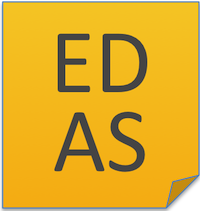Supporting open access journals and conferences
An increasing number of journals and conferences have started to implement open access (author pays) or hybrid models, where authors may choose, for a fee, to make their paper openly accessible. EDAS now supports a set of features to facilitate such journals and conferences. For hybrid journals and conferences, you can set up appropriate categories, and set up fee for the open access options, possibly several. Authors can choose the option either when submitting their paper for review, or after it has been accepted. Before uploading the final manuscript, they must pay the set amount by credit card. To avoid that reviewers are influenced by the open access choice of the author, categories can now be configured with fine-grained visibility choices, allowing restricting access to the authors, reviewers, TPC members, group leaders, track chairs and chairs for the paper. For conferences, you can also use the event registration mechanism to collect open access fees.
